About the Department
The Department has conducted various seminar/conference/workshop/training in distinct biotechnological fields for department improvement. The faculty of the department have represented their work as presentation at the national and international level in scientific association and conferences. The department has acquired various projects in the last three years from prestigious funding agencies like Ayush, DST-SERB and UGC.
Apart from this, various initiatives have been taken to improve student learning and their technological skill, which involve guest lecture, industrial visit and soft skills training. The Department has created “Techno Gene Club” in the academic year 2011 – 2012, to date and various programmes have been organized by this club like lectures, competitions, workshops, training programs etc., on various aspects of Biotechnology. The Department started its News Bulletin “Blooming Biotech” to bring to light various achievements made by the staff and students are encouraged to write small articles.
Further attention was focused on research consultancy and the department has signed Memorandum of Understanding with various research labs and biotech industries in Chennai. Every year the graduated students are placed in various esteemed institution in doctoral and post-doctoral positions, and have become entrepreneurs in reputed biotech industries.
Vision & Mission
Vision of the Department
To educate budding researchers with professional principles to meet the challenges in the field of biotechnology.
Mission of the Department
To onset a skilful research potential in emerging technological areas like environmental, industrial, agricultural and health for the societal benefit.
Programmes Offered
- Ph.D Biotechnology
- M.Phil Biotechnology
- M.Sc., Biotechnology
- M.Sc., Applied Medical Biotechnology and Clinical Research
- B.Sc., Biotechnology
Faculty-Student Ratio: 1:20
Facilities
The department of Biotechnology has several modern lab facilities & equipments for biotechnological research
Infrastructure
- Genetic engineering Lab
- Plant Molecular Biology Lab
- Animal Tissue Culture Lab
- Fermentation Technology Lab
- Phytochemical extraction Lab
- Microbial Technology Lab
- Central instrumentation lab
Some of the major equipment include
- Real Time PCR
- X-ray diffractometer (XRD)
- Gel Documentation
- Cooling centrifuge
- ELISA Plate reader & ELISA Washer
- Cooling Incubator
- CO2 Incubator with regulator
- Cooling centrifuge C-24
- Centrifuge R24
- Fermentor
- UV Spectro Photometer
- Inverted Microscope
- Rotating Vacuum Flask Evaporator
The centralized laboratory facilities include
- Dynamic light scattering – Particle Size and Zeta potential analyzer
- BET Surface area analyzer
- Field emission scanning electron microscope (FESEM)- Energy Dispersive X-ray spectroscopy (EDS)
- Confocal Raman Spectroscopy/Imaging
- Thermogravimetric Analysis (TGA)
- Differential Scanning Colorimetry (DSC)
- Fourier Transform IR spectroscopy (FTIR)
- Atomic Force Microscope (AFM)
- High Performance Thin Layer Chromatography (HPTLC)
- Real time polymerase chain reaction (RT-PCR)
- UV-Vis Spectrophotometer
- Electrochemical Workstation
Programme Outcomes
PROGRAM OUTCOME (PO)
PO-1: Graduates will able to have knowledge on the basic of applied clinical process..
PO-2: Handling of sophisticated instrumentations and interpretation and analysis of
clinical data.
PO-3: Developing an interdisciplinary approach and a rational thinking.
PO-4: Designing of research projects that are cost effective, ecofriendly, potent and
beneficial to human health.
PO-5: Making the graduates to demonstrate their communication effectively and
scientifically in both verbal and written form as independent researcher.
PO-6: Providing a broad educational, and analytical knowledge necessary to make the
students for appearing in competitive examinations.
PO-7: Generating the graduates with an ability to identify, formulate and solve to
deliver process/product with professional, societal and ethical responsibilities.
PO-8: Graduates will be able to recognize need for self-learning and lifelong learning.
PO-9: The student will be able design, solve the application-oriented problem in
medical biotechnological field through project-based learning.
PO-10: Demonstrate their ability to work effectively in team and Improvising the
technical skills and implying them.
Programme Educational Objectives (PEOs)
PROGRAMME EDUCATIONAL OBJECTIVES (PEOs)
PEO 1: The graduates of Biotechnology will able to attain the in-depth knowledge of the basic and application-oriented subjects of Biotechnology and allied fields.
PEO 2: The graduates of Biotechnology will able to gain the ability to use the concept of theories, practical skills and latest technological tools in solving any professional issues independently in a global and societal context.
PEO 3: The graduates of Biotechnology are equipped to design, analyze, conduct and interpret the experiments and data for the development of process/product within the realistic constraints.
PEO 4: The graduates of Biotechnology will continue to learn and update knowledge to become an entrepreneur in a current competitive world of science & technology and also contribute to society.
Programme Educational Objectives (PEOs)
PROGRAMME EDUCATIONAL OBJECTIVES (PEOs)
PEO 1: The post-graduates of Biotechnology will able to attain the in-depth knowledge of the basic and application-oriented subjects of Biotechnology and allied fields.
PEO 2: The post-graduates of Biotechnology will able to gain the ability to use the concept of theories, practical skills and latest technological tools in solving any professional issues independently in a global and societal context.
PEO 3: The post-graduates of Biotechnology are equipped to design, analyze, conduct and interpret the experiments and data for the development of process/product within the realistic constraints.
PEO 4: The Post graduates of Biotechnology will continue to learn and update knowledge to become an entrepreneur in a current competitive world of science & technology and also contribute to society.
Programme Outcomes (POs) & Programme Specific Outcomes(PSOs)
PROGRAMME OUTCOMES (POs)
PO1 Scientific knowledge: Graduates will acquire biochemistry/biotechnology/ bioinformatics/ microbiology specific knowledge including recent techniques in the respective fields coupled with hands-on skills and leadership skills for a successful career.
PO2 Problem analysis: Graduates will be able to analyse, solve and troubleshoot problems in implementation of biochemistry/biotechnology/ microbiological protocols.
PO3 Design/development of solutions: Graduates will develop creative thinking and cooperate with each other to solve problems in the field of biochemistry/ biotechnology/ bioinformatics/ microbiology.
PO4 Conduct investigations of complex problems: Graduates will acquire practical skills – which help in planning and designing protocols to validate hypothesis and execute experimental techniques independently as well as assimilate, analyse and interpret subsequent data.
PO5 Modern tool usage and communication: Graduates will effectively be able to manage resources and time using ICT and computer enabled devices and accomplish ability to understand and communicate all ideas effectively.
PO6 Environment sustainability and Ethics: Graduates will get adequate knowledge to use information and implement solutions for environmental protection and remediation. Graduates will be aware of their role and responsibility in handling and use of microbes including genetically modified microorganisms.
PO7 Lifelong learning: Graduates will carry on to learn and adapt in a world of constantly evolving technology.
PROGRAM SPECIFIC OUTCOME (PSO)
PSO1: To impart an ability to apply biotechnology skills (including molecular & micro biology, immunology & genetic engineering, bioprocess & fermentation, enzyme & food technology and bioinformatics) and its applications in core and allied fields
PSO2: Demonstrate the application of Biotechnological processes in industries that are of social and commercial importance.
PSO3: To impart in-depth practical oriented knowledge to students in various thrust areas of biotechnology, so as to meet the demands of industry and academia.
Curriculum & Syllabus
CURRICULUM & SYLLABUS
MINIMUM CREDITS TO BE EARNED: 90
| SEMESTER1 | Hours/Week | Maximum Marks | ||||||
|---|---|---|---|---|---|---|---|---|
| Code No. | Course | Lecture | Tutorial | Practical | Credits | CA | SEE | Total |
| Core | Core 1 Cell and Molecular Biology | 4 | 0 | 0 | 4 | 40 | 60 | 100 |
| Core | Core 2 Applied Medical Biochemistry | 4 | 0 | 0 | 4 | 40 | 60 | 100 |
| Core | Core 3 Medical Microbiology | 4 | 0 | 0 | 4 | 40 | 60 | 100 |
| Core | Core 4 Medical Microbiology & Medical Biochemistry Practical | 0 | 0 | 4 | 2 | 40 | 60 | 100 |
| DSE | DSE 1 Human Genetics and Developmental biology | 4 | 0 | 0 | 4 | 40 | 60 | 100 |
| DSE | DSE 2 Biostatistics, Epidemiology & Public health | 4 | 0 | 0 | 4 | 40 | 60 | 100 |
| SEC | Soft Skill 1/ Sector Skill Course | 2 | 0 | 0 | 2 | 40 | 60 | 100 |
| Total | 22 | 0 | 4 | 24 |
Programme Outcomes (POs) & Programme Specific Outcomes(PSOs)
PROGRAMME OUTCOMES (POs)
PO1: Graduates will able to have knowledge on the basic and applied theories.
PO2: Handling of sophisticated instrumentations and interpretation and analysis of data.
PO3: Developing an interdisciplinary approach and a rational thinking.
PO4: Designing of research projects that are cost effective, ecofriendly, potent and beneficial to mankind.
PO5: making the graduates to demonstrate their communication effectively and scientifically in both verbal and written form as independent researcher.
PO6: Providing a broad educational and analytical knowledge necessary to make the students for appearing in competitive examinations.
PO7: Generating the graduates with an ability to identify, formulate and solve to deliver process/product with professional, societal and ethical responsibilities.
PO8: Graduates will be able to recognize need for self-learning and lifelong learning.
PO9:The student will be able design, solve the application-oriented problem in biotechnological field through project-based learning.
PO10: Demonstrate their ability to work effectively in team and improvising the technical skills and implying them
PROGRAM SPECIFIC OUTCOME (PSO)
PSO1: Apply fundamental knowledge of biological sciences for the human Welfare and to have successful career as professional or a researcher through lifelong learning in the field of biotechnology.
PSO2: Demonstrate the application of Biotechnological processes in industries that are of social and commercial importance.
PSO3: Exhibit skills of handling microbial processes and biochemical analysis by making use of state-of-the-art facilities and environment.
Curriculum & Syllabus
CURRICULUM & SYLLABUS
MINIMUM CREDITS TO BE EARNED: 140
| Hours/Wee | Maximum Marks | |||||||
|---|---|---|---|---|---|---|---|---|
| Code No. | Course | Lecture | Tutorial | Practical | Credits | CA | SEE | Total |
| SEMESTER 1 | ||||||||
| LANG | Tamil I/ Hindi / French | 3 | 0 | 0 | 3 | 40 | 60 | 100 |
| ENG | English I | 3 | 0 | 0 | 3 | 40 | 60 | 100 |
| CORE1 | Fundamentals of Cell Biology | 3 | 1 | 0 | 4 | 40 | 60 | 100 |
| CORE2 | Genetics and Developmental Biology | 3 | 1 | 0 | 4 | 40 | 60 | 100 |
| CORE3 | Biochemistry | 4 | 0 | 0 | 4 | 40 | 60 | 100 |
| CORE | Practical 1 : Cell Biology, Genetics Developmental Biology Practica | 0 | 0 | 4 | 2 | 40 | 60 | 100 |
| CORE | Practical 2 : Biochemistry Practical | 0 | 0 | 4 | 2 | 40 | 60 | 100 |
| AECC | Communication Skills | 1 | 0 | 2 | 2 | 40 | 60 | 100 |
| SEC | Orientation/Induction programme / Life skills | - | - | - | - | - | - | - |
| 17 | 2 | 10 | 24 |
Eligibility Criteria
| Program | Eligibility | Criteria for Merit |
|---|---|---|
| M.Sc. Applied Medical Biotechnology & Clinical Research | Degree in B.Sc Zoology, Botany, Chemistry, Biology, Biotech, Biochemistry, Microbiology, Home Science, Physics, Genetics, B.Sc Agri., B.V.Sc, B.F.Sc, B.Sc MLT, BDS, MBBS & B.Pharm | Merit - Based on percentage of marks secured in the qualifying examination. |
Curriculum & Syllabus
CURRICULUM & SYLLABUS
MINIMUM CREDITS TO BE EARNED: 140
| Hours/Week | Maximum Marks | |||||||
|---|---|---|---|---|---|---|---|---|
| Code No. | Course | Lecture | Tutorial | Practical | Credits | CA | SEE | Total |
| SEMESTER1 | ||||||||
| Core | Core 1 Cell and Developmental Biology | 4 | 0 | 0 | 4 | 40 | 60 | 100 |
| Core | Core 2 Microbiology | 4 | 0 | 0 | 4 | 40 | 60 | 100 |
| Core | Core 3 Biochemistry | 4 | 0 | 0 | 4 | 40 | 60 | 100 |
| Core | Core 4 Biochemistry and Microbiology Practical | 0 | 0 | 4 | 2 | 40 | 60 | 100 |
| DSE | DSE 1 Molecular Genetics | 4 | 0 | 0 | 4 | 40 | 60 | 100 |
| DSE | DSE 2 Bioinstrumentation | 4 | 0 | 0 | 4 | 40 | 60 | 100 |
| SEC | Soft Skill 1/ Sector Skill Course | 2 | 0 | 0 | 2 | 40 | 60 | 100 |
| 22 | 0 | 4 | 24 |
Eligibility Criteria
| Program | Program Duration (Year) | Eligibility | Criteria for Merit |
|---|---|---|---|
| B.Sc Bio-Technology | 3 Years (6 Semesters) | Pass in +2, HSC or equivalent with Biology/ Botany/ Zoology/ Biochemistry/ Biotech/ Microbiology. | Merit based on the percentage of marks secured in the qualifying examination |
Career Prospects
CAREER PROSPECTS
- Biomedical Engineer
- Quality controller
- Medical Scientist
- Clinical Technician
- Microbiologist
- Process Development Scientist
- Biomanufacturing Specialist
- Business Development Manager
- Product Strategist
- Biopharma Sales Representative
- Medical Scientist
- Biotechnological Technician
- Epidemiologist
- Microbiologist
- Medical and Clinical Lab Technologist
- Biomanufacturing Specialist
- Bioproduction Specialist
- R&D Scientist
- Tutor/Teacher / Professor
- Medical Coder
Eligibility Criteria
| Program | Program Duration (Year) | Eligibility | Criteria for Merit |
|---|---|---|---|
| M.Sc Bio-Technology | 2 Years (4 Semesters) | Degree in B.Sc Zoology/ Botany/ Chemistry/ Biology/ Biotech/ Biochemistry/ Microbiology or B.V.Sc/ B.Sc Agri/ B.Tech Biotech/ MBBS | Merit based on the percentage of marks secured in the qualifying examination |
Career Prospects
CAREER PROSPECTS
- Quality controller
- Medical Scientist
- Clinical Technician
- Microbiologist
- Process Development Scientist
- Biopharma Sales Representative
- Biotechnological Technician
- Epidemiologist
- Microbiologist
- Medical and Clinical Lab Technologist
- Biomanufacturing Specialist
- Bioproduction Specialist
- Medical Coder
- Environmental Technician
Alumni Testimonials

Vels University ( VISTAS) not only gave us an excellent platform to study and excel in our professional lives but also on the personal front, we are together in marital bliss. We fondly and very vividly remember our Alma Mater. We both are doing exceptionally well in our respective Professional domains which is all because of the training, grooming, motivation and inspiration that enabled and helped us in pursuing excellence in education and becoming thorough professionals.
Ms. Pavithra M (M.Sc. Applied Medical Biotechnology and Clinical Research), 2019-2021
Clinical Technician @ Hare Scans Diagnostic Centre & Fertility Lab, Chennai
Career Prospects
CAREER PROSPECTS
- Biomedical Engineer
- Quality controller
- Medical Scientist
- Clinical Technician
- Microbiologist
- Process Development Scientist
- Biomanufacturing Specialist
- Business Development Manager
- Product Strategist
- Biopharma Sales Representative
- Medical Scientist
- Biotechnological Technician
- Epidemiologist
- Microbiologist
- Medical and Clinical Lab Technologist
- Biomanufacturing Specialist
- Bioproduction Specialist
- R&D Scientist
- Tutor/Teacher / Professor
- Medical Coder
- Environmental Technician
Alumni Testimonials

Department of Biotechnology, VISTAS provides state-of-the-art infrastructure and facilities. The professors are highly qualified, knowledgeable, and friendly. The course curriculum is relevant and offers site visits. Most importantly, the annual events organized by the college are awesome and witness huge crowds. The university conducts various extracurricular activities throughout the year. I thoroughly enjoyed my student life while pursuing my Bachelors program at VISTAS (Deemed-to-be University).
M. Srimathi (B.Sc. Biotechnology), 2017 - 2020
Junior Microbiologist @ Eupro Biotech private Limited, Chennai
Fee Structure
| Tuition Fee 2023 - 2024 (Per Sem) | Other Fee (Per Sem) | Total Fee (Per Sem) |
|---|---|---|
| 37,500 | 10,000 | 47,500 |
Alumni Testimonials

I can certainly say that VELS was the most important milestone in shaping my career. Best in class faculty from industry and hands on experience from various training (especially Industrial visits). Throughout the academic sessions, I was challenged to discover capabilities that I never knew I had. Along with academics, the University focuses on personality development which helped me build a rewarding career.
Mr. S. Suresh (M.Sc., Biotechnology),2016 to 2018
Deputy Officer-QA(ISO & Food Safety Coordinator) Hatsun Agro Product LTD
Fee Structure
| Tuition Fee 2024 - 2025 (Per Sem) | Other Fee (Per Sem) | Total Fee 2024 - 2025 (Per Sem) |
|---|---|---|
| 17,000 | 13,000 | 30,000 |
Fee Structure
| Tuition Fee 2024 - 2025 (Per Sem) | Other Fee (Per Sem) | Total Fee 2024 - 2025 (Per Sem) |
|---|---|---|
| 25,000 | 20,000 | 45,000 |
Faculty of the Department
| Sl. No. | Name of the Faculty | Designation | Educational Qualification | Area of Specialization | Experience in Years | Vidwan ID | Photos |
|---|---|---|---|---|---|---|---|
| 1 | Dr.Ashok Kumar.K | Associate Professor and HOD | M.Sc., M.Tech, M.Phil, SET, Ph.D | Biochemistry , Oncology and Environmental Biotechnology | 19 years 2 months | 233902 | 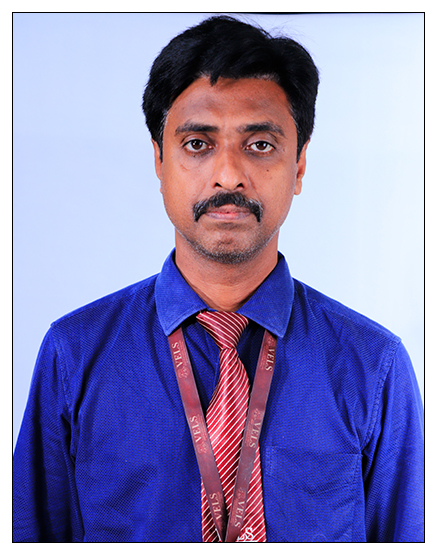 |
| 2 | Dr.Udaya Prakash.N.K | Professor | M.Sc., M.Phil., Ph.D. | Aerobiology (Mycology and Palynology), Microbiology, Herbal Science, Bio Nanotechnology, Bio-remediation | 22 years 2 months | 249657 | 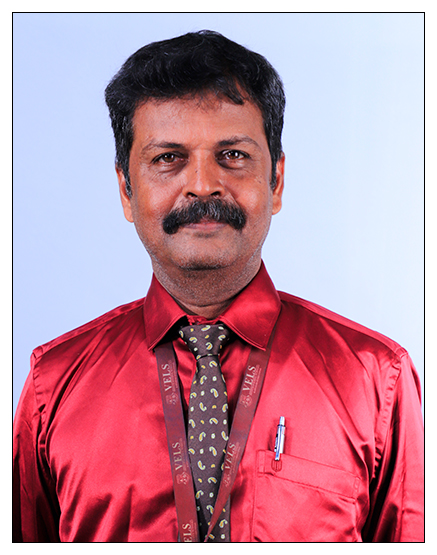 |
| 3 | Dr.Prakash.B | Associate Professor | M.Sc., M.Tech, M.Phil, Ph.D | Animal Biotechnology and Medical Biotechnology | 21 years | 232485 | 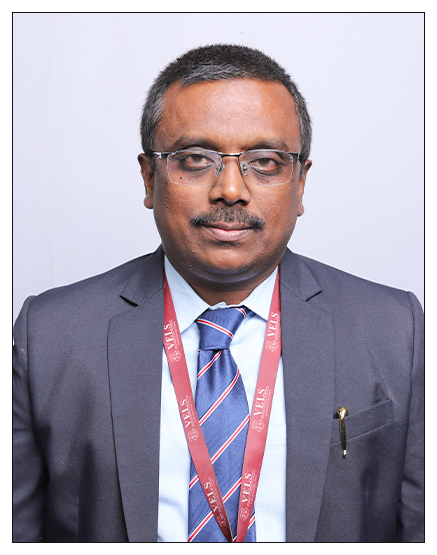 |
| 4 | Dr.Vijayalakshmi.S | Associate Professor | M.Sc., SLET, Ph.D. | Secondary Metabolite Production by Fungi and Fungal genetics and Molecular Cell Biology | 19 years 2 months | - | 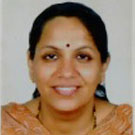 |
| 5 | Dr.Thenmozhi.M | Associate Professor | M.Sc., MBA, M.Phil, Ph.D | Plant, Environmental Biotechnology and Organic farming | 15 years 2 months | 232505 | 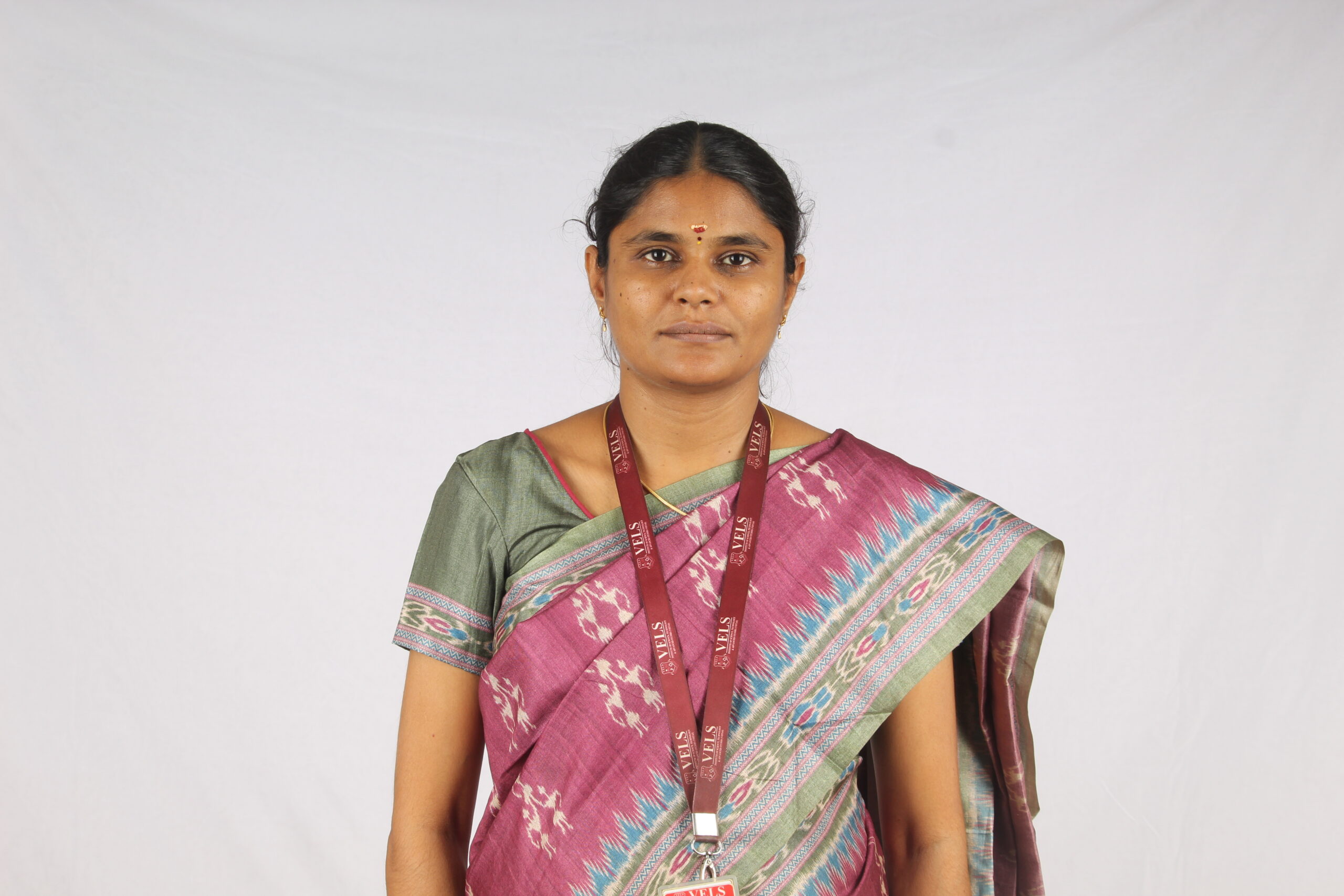 |
| 6 | Dr.Sampath Kumar.B | Assistant Professor | M.Sc, Ph.D | Fungal Diversity | 15 years 2 months | 251184 | 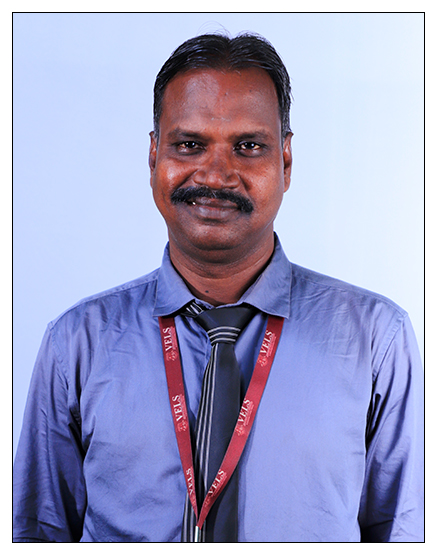 |
| 7 | Dr.Abirami Gopalakrishnan | Assistant Professor | M.Sc., Ph.D | Bioremediation Extremohiles, Actinomycetes, Microbial Molecular Diversity, Drug Discovery | 6years,2months | 236844 | 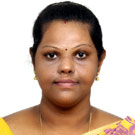 |
| 8 | Dr.Suganthi.M | Assistant Professor | M.Sc., Ph.D | Microbial biotechnology and Insect molecular biology | 6years,2months | 232457 | 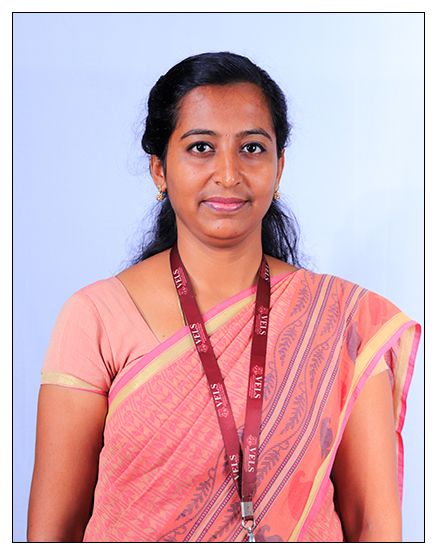 |
| 9 | Dr.Jayanthi.M | Assistant Professor | M.Sc.,M.Phil, Ph.D | Plant Metabolic Profiling, Plant Tissue Culture and Genetic Engineering | 6years,1months | 232456 | 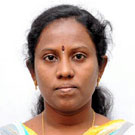 |
| 10 | Dr.Manjunathan.J | Assistant Professor | M.Sc., M.Phil., Ph.D., | Mushroom biology, Microbiology, Fungal biotechnology | 6 years 2 months | 233885 | 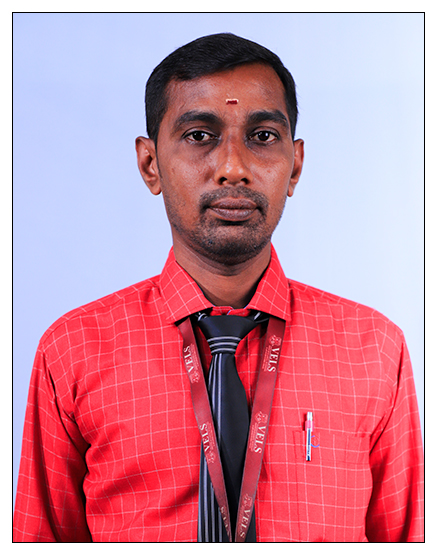 |
| 11 | Dr.Durgadevi.R | Assistant Professor | M.Sc.,Ph.D | Medical Microbiology, Nanotechnology, Drug Discovery mechanism | 1years,2months | 292444 | 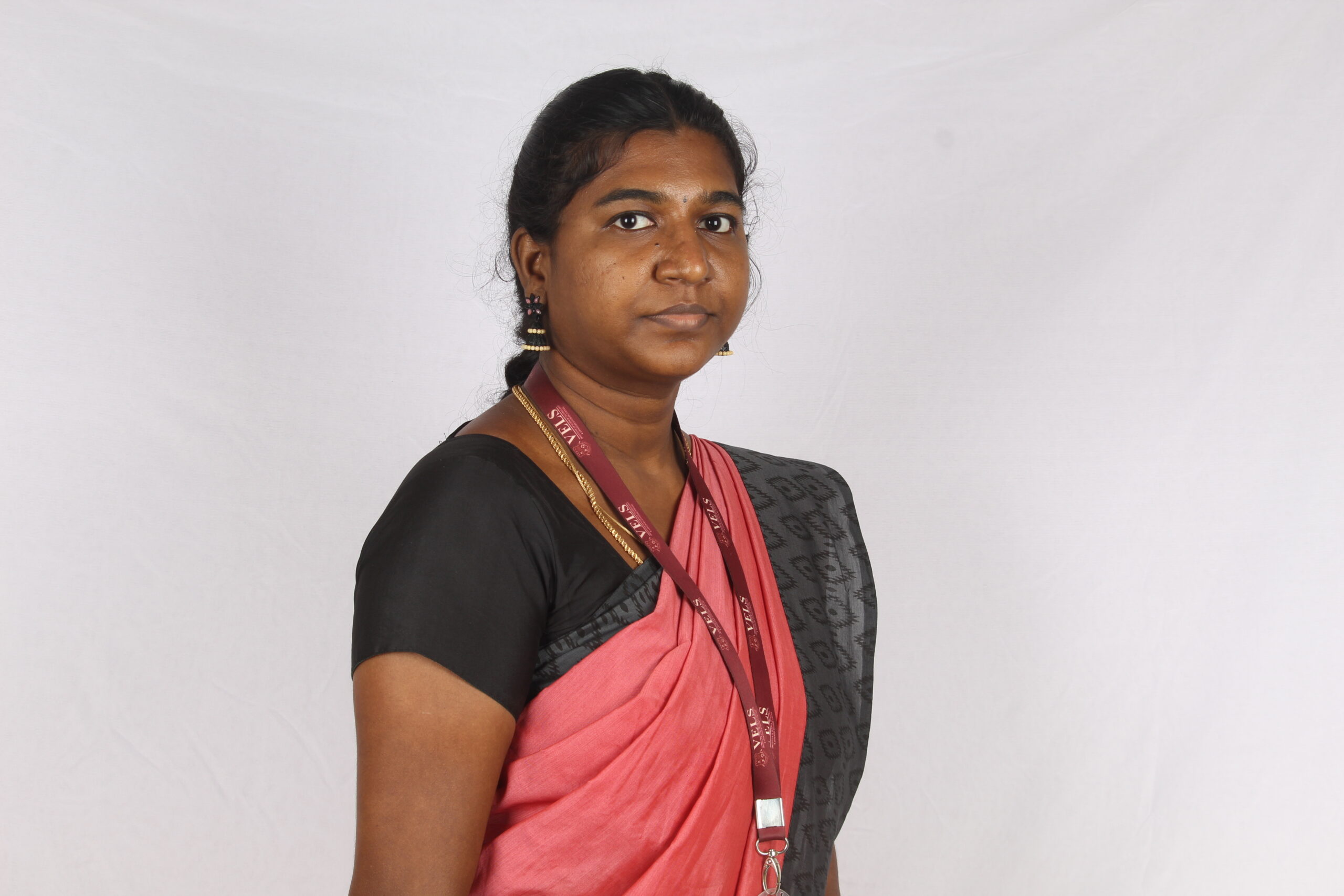 |
| 12 | Dr.Vardhana.J | Assistant Professor | M.Sc., Ph.D | NanoBiotechnology,Fungal Secondary metabolites ,Fungal Endophytes, Environmental Microbiology | 6 years 2 months | 298106 | 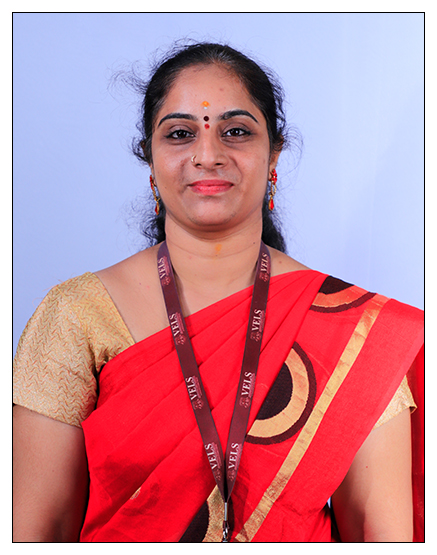 |
| 13 | Ms.Preethi.N | Assistant Professor | M.Sc Biotechnology | Mushroom biology, Microbiology, Fungal biotechnology | 3 years 8 months | 481450 | 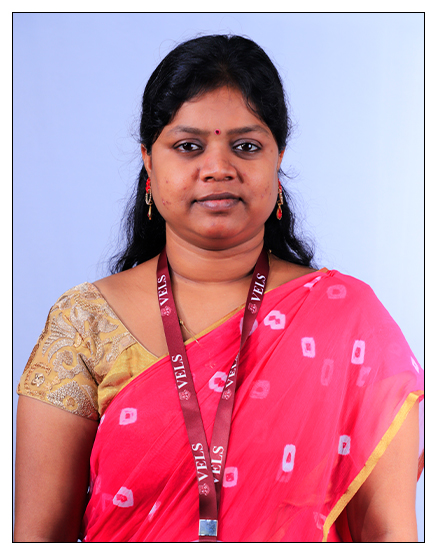 |
Faculty of the Department
| Sl. No. | Name of the Faculty | Designation | Educational Qualification | Area of Specialization | Experience in Years | Vidwan ID | Photos |
|---|---|---|---|---|---|---|---|
| 1 | Dr.Ashok Kumar.K | Associate Professor and HOD | M.Sc., M.Tech, M.Phil, SET, Ph.D | Biochemistry , Oncology and Environmental Biotechnology | 19 years 2 months | 233902 |  |
| 2 | Dr.Udaya Prakash.N.K | Professor | M.Sc., M.Phil., Ph.D. | Aerobiology (Mycology and Palynology), Microbiology, Herbal Science, Bio Nanotechnology, Bio-remediation | 22 years 2 months | 249657 |  |
| 3 | Dr.Prakash.B | Associate Professor | M.Sc., M.Tech, M.Phil, Ph.D | Animal Biotechnology and Medical Biotechnology | 21 years | 232485 |  |
| 4 | Dr.Vijayalakshmi.S | Associate Professor | M.Sc., SLET, Ph.D. | Secondary Metabolite Production by Fungi and Fungal genetics and Molecular Cell Biology | 19 years 2 months | - |  |
| 5 | Dr.Thenmozhi.M | Associate Professor | M.Sc., MBA, M.Phil, Ph.D | Plant, Environmental Biotechnology and Organic farming | 15 years 2 months | 232505 |  |
| 6 | Dr.Sampath Kumar.B | Assistant Professor | M.Sc, Ph.D | Fungal Diversity | 15 years 2 months | 251184 |  |
| 7 | Dr.Abirami Gopalakrishnan | Assistant Professor | M.Sc., Ph.D | Bioremediation Extremohiles, Actinomycetes, Microbial Molecular Diversity, Drug Discovery | 6years,2months | 236844 |  |
| 8 | Dr.Suganthi.M | Assistant Professor | M.Sc., Ph.D | Microbial biotechnology and Insect molecular biology | 6years,2months | 232457 |  |
| 9 | Dr.Jayanthi.M | Assistant Professor | M.Sc.,M.Phil, Ph.D | Plant Metabolic Profiling, Plant Tissue Culture and Genetic Engineering | 6years,1months | 232456 |  |
| 10 | Dr.Manjunathan.J | Assistant Professor | M.Sc., M.Phil., Ph.D., | Mushroom biology, Microbiology, Fungal biotechnology | 6 years 2 months | 233885 |  |
| 11 | Dr.Durgadevi.R | Assistant Professor | M.Sc.,Ph.D | Medical Microbiology, Nanotechnology, Drug Discovery mechanism | 1years,2months | 292444 |  |
| 12 | Dr.Vardhana.J | Assistant Professor | M.Sc., Ph.D | NanoBiotechnology,Fungal Secondary metabolites ,Fungal Endophytes, Environmental Microbiology | 6 years 2 months | 298106 |  |
| 13 | Ms.Preethi.N | Assistant Professor | M.Sc Biotechnology | Mushroom biology, Microbiology, Fungal biotechnology | 3 years 8 months | 481450 |  |
 CHAT WITH A STUDENT
CHAT WITH A STUDENT